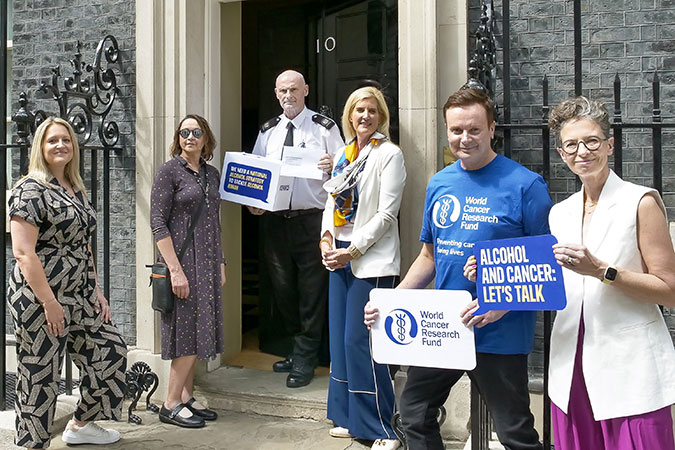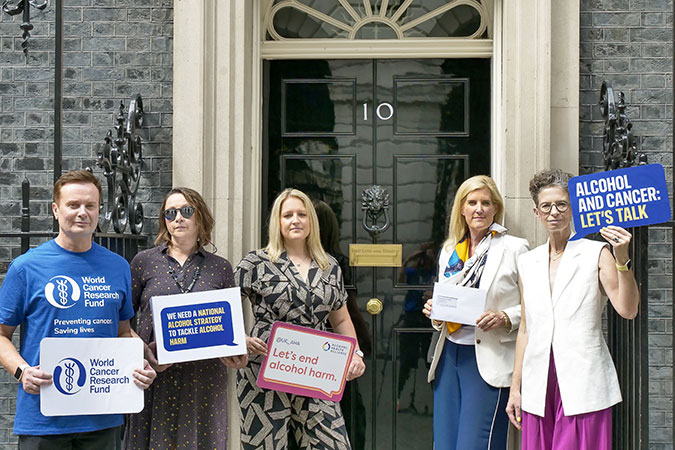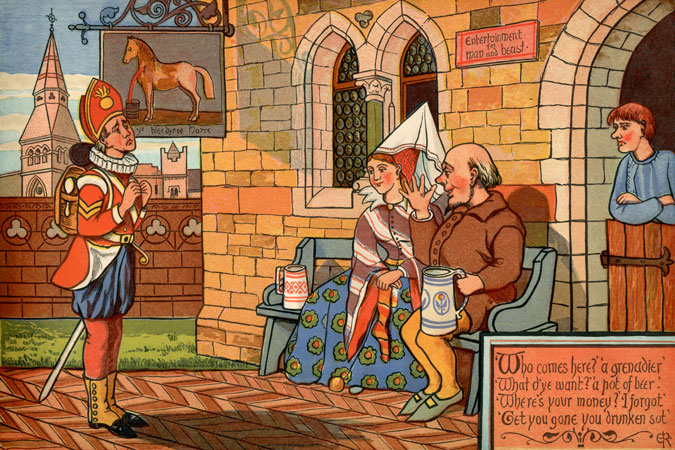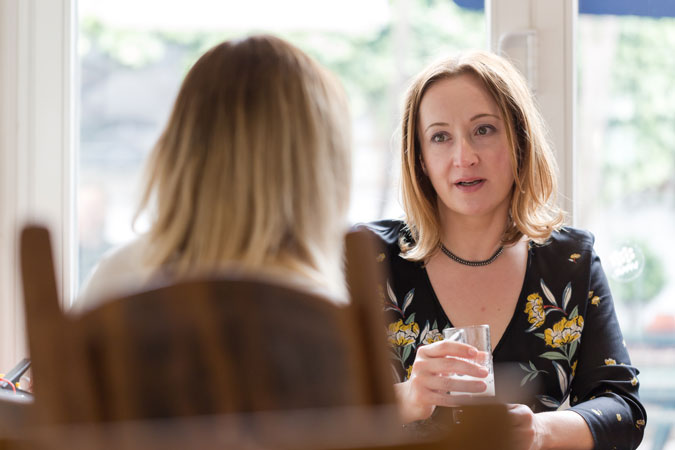News and blogs
Latest news, updates and blogs from World Cancer Research Fund.

We delivered our petition to 10 Downing Street
As part of Cancer Prevention Action Week 2025, we handed in a letter and petition signed by more than 2,400 people to the Prime Minister.

We applaud launch of 10-Year Health Plan, but there are still shortcomings
While the government’s big health announcement had some good points, we think they could do much more

New study shows benefits of physical activity for colon cancer survivors
The CO21 CHALLENGE Trial shows that exercise after colon cancer treatment resulted in longer disease-free survival

We join forces with Our Future Health to help prevent cancer across UK
World Cancer Research Fund is now an affiliate partner of Our Future Health and together we aim to unlock deeper insights into cancer prevention through data and research

Magnificent mocktails with a fruity take on going alcohol-free
Try our mocktails made in minutes, all with 5 ingredients or fewer

We delivered our petition to 10 Downing Street
As part of Cancer Prevention Action Week 2025, we handed in a letter and petition signed by more than 2,500 people to the Prime Minister

Britain and booze throughout history
From small beer to big gin and ‘Guinness is good for you’ campaigns, we chart Britain’s fascinating history of alcohol and abstinence

Why is alcohol so popular among older drinkers while young people cut back?
Alcohol is a way of life in societies around the world – yet there are signs of change as young adults are drinking less than previous generations. We spoke to Prof Richard Cooke about the psychology of drinking alcohol

Why is saying ‘No thanks’ so difficult when someone offers you a drink?
Steering clear of alcohol when spending time with friends or family shouldn’t be a minefield – especially when the science says it’s so bad for your health

Brits find it harder to talk about alcohol than sex or money
Our poll finds only 16% of Brits feel comfortable talking about their relationship with alcohol

CPAW 2025 diary
We engaged with politicans, gave radio interviews and spoke to the science experts about alcohol and cancer

We call on Irish government to stay strong on alcohol warning labels
In letters to Taoiseach and Health Minister, we urge government to ensure planned introduction of alcohol health labels comes into force without delay.

Charity responds to latest UK government spending review
We respond to the UK government’s first multi-year spending review, where the Chancellor set out departmental budgets for the next 3 years